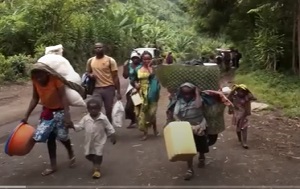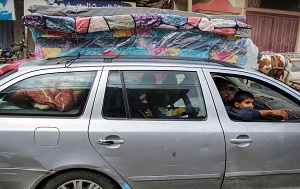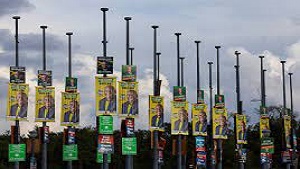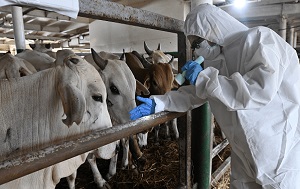Over the past 30 years, the country’s democracy has evolved into a character of a true democracy.
This year marks 30 years of democracy in South Africa, with April 27 being the main day. “Coming from a very oppressive apartheid system where citizens were not allowed to vote, the SA democracy entrenched itself from 1994 up until today with regular elections,” Ndou says.
He adds that the country’s democracy has seen elections viewed by political parties, election observers and ordinary citizens as free and fair.
The Independent Electoral Commission of SA (IEC), entrusted with the responsibility to run elections, has been able to do its job effectively. “You don’t get people complaining about the wrong things,” Ndou says.
The country ranks sixth on the Economist Intelligence Unit’s Democracy Index, which assesses countries based on electoral processes, political culture, participation, government functioning, and civil liberties. Mauritius leads the pack, followed by Botswana and Cape Verde.
Unlike many other African countries where post-elections often lead to unrest due to disputes over results, SA has managed to maintain peace. “We don’t have that in SA,” Ndou adds.
The political analyst says it should be noted that in South Africa, political parties and politicians freely participate in political activities without any abuse or hindrance from any other forces, including the government or any other government institution.
Thus, the country’s progress leaves those who fought for democracy proud.
He says SA is fortunate not to have extreme elements going into and post-elections.
According to the index, SA’s democratic progress reflects its resilience in overcoming a tumultuous past. “Challenges such as corruption and socioeconomic disparities underline the ongoing work needed to strengthen democratic foundations,” the index points out.
On the other hand, Ndou says that the country’s political parties have been shaped tremendously by what has happened post-1994.
“Because of this democracy, you now have new political parties that are formed. And they also make an impact. We don’t rely on the traditional political parties,” Ndou says.
New candidates
According to Ndou, the country’s democracy has made people aware that they can still form their own political parties and campaign against traditional political parties.
Democracy in SA has also allowed independent candidates to participate in the elections, the Political Sciences and Public Policy Lecturer at the University of Venda says.
“We’ve got a very open, free, and transparent political setup in South Africa in the sense that all of us are encouraged to be part of the political process, and we are also able to observe,” Ndou says.
As the country prepares for this year’s elections set for May 29, the Electoral Court has been busy with many cases with parties taking the IEC to court for many issues around participation, candidates and more.
Ndou says these challenges aren’t that major and are actually good for the democratic process. “There are people who would see court cases in a negative light. They should not be seen only in a negative light.
“They should also be seen in a positive light, in the sense that they assist all of us, and in particular the IEC, to move forward knowing that everything is within the framework of the law,” Ndou says.
He indicates that such a perspective underscores the robustness of SA’s democratic process, a testament to its growth and resilience.
--ChannelAfrica--












